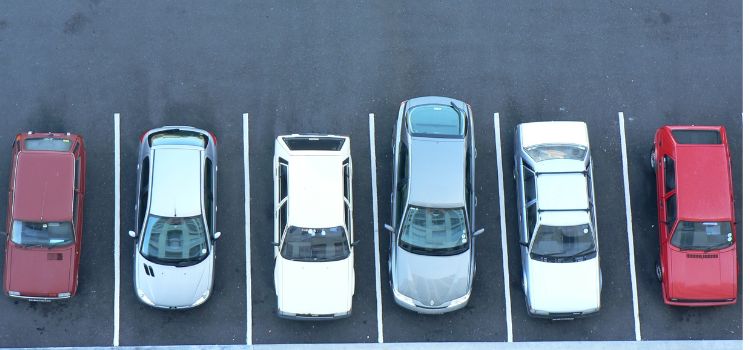As hurricane season approaches, it’s important to make sure you have a plan in place for your car. While you may be focused on securing your home and belongings, your car is also at risk during a hurricane. High winds, flooding, and falling debris can all cause damage to your vehicle.
Contents
One of the most important steps you can take to protect your car during a hurricane is to find a safe place to park it. This can be challenging, as many traditional parking spots may not be suitable for a severe weather event. However, with a little planning and preparation, you can find a spot that will keep your car as safe as possible.
When considering where to park your car during a hurricane, it’s important to prioritize safety over convenience. Avoid parking near trees or power lines, as these can fall and cause significant damage. Look for high ground, as flooding is a common issue during hurricanes. If possible, park your car in a garage or other covered area to protect it from wind and debris. With these tips in mind, you can help ensure that your car stays safe and secure during a hurricane.
Evacuation Zones
Understanding Evacuation Zones
When a hurricane is approaching, it’s important to know if you live in an evacuation zone. Evacuation zones are areas that are at risk of flooding or other storm hazards, and are therefore designated for mandatory evacuation.
To find out if you live in an evacuation zone, check with your local emergency management agency or visit their website. You can also check your county’s evacuation zone maps, which are usually available online.
Evacuation zones are typically labeled with letters or numbers, and are color-coded to indicate the level of risk. Zone A is usually the highest risk zone, followed by Zone B and so on.
What to Do if You Live in an Evacuation Zone
If you live in an evacuation zone, it’s important to have a plan in place before a hurricane strikes. Make sure you know where you will go and how you will get there. If you don’t have a car, make arrangements for transportation.
When a hurricane is approaching, listen to local news and follow the instructions of emergency officials. If you are told to evacuate, do so immediately. Don’t wait until the last minute, as roads may become congested and it may be difficult to find a place to stay.
If you have pets, make sure you have a plan for them as well. Not all shelters accept pets, so make arrangements to stay with friends or family, or find a pet-friendly hotel.
What to Do if You Don’t Live in an Evacuation Zone
Even if you don’t live in an evacuation zone, it’s still important to be prepared for a hurricane. Make sure you have a hurricane kit with food, water, and other supplies, and have a plan in place in case you lose power or need to evacuate for other reasons.
Stay informed by listening to local news and following the instructions of emergency officials. Even if you don’t have to evacuate, you may still need to take precautions such as boarding up windows or securing outdoor furniture.
Parking Options
When a hurricane is approaching, it is important to find a safe place to park your car. Here are some options:
Designated Evacuation Parking Lots
If you live in an evacuation zone, your local government may designate certain parking lots as evacuation parking lots. These lots are typically large, open spaces that can accommodate a large number of vehicles. They are often located near public transportation, so you can easily get to a shelter or other safe location. Check with your local government to see if there are any designated evacuation parking lots in your area.
Public Parking Garages
If you live in an area with high-rise buildings or downtown areas, public parking garages may be a good option. These garages are typically built to withstand strong winds and flooding, and they often have multiple levels, so you can park your car on a higher floor to avoid flooding. However, keep in mind that these garages may fill up quickly, so it is important to arrive early.
Private Parking Lots
If you do not live in an evacuation zone or near a public parking garage, private parking lots may be an option. Look for parking lots that are located on high ground and away from flood-prone areas. Keep in mind that some private parking lots may charge a fee, especially during emergencies, so be prepared to pay if necessary.
Remember, it is important to park your car in a safe location during a hurricane. Take the time to research your options and plan ahead to ensure that you and your car stay safe during the storm.
Preparing Your Car
When a hurricane is approaching, it’s important to prepare your car for the potential impact. Here are a few things you can do to protect your car and its contents:
Removing Valuables and Important Documents
The first step to preparing your car is to remove any valuables and important documents. This includes items like your wallet, laptop, and passport. Also, remove any loose items from your car that could become projectiles during high winds. Store these items in a safe place, such as a waterproof container or a secure location inside your home.
Securing Your Car
The next step is to secure your car. If possible, park your car in a garage or other enclosed structure. If you don’t have access to a garage, park your car in an area that is protected from high winds and flooding. Avoid parking under trees or near power lines, as these can become hazards during a hurricane.
Before the storm hits, make sure your car is fully fueled and the tires are properly inflated. This will help ensure that you can evacuate quickly if necessary. You should also consider covering your car with a tarp or other protective covering to prevent damage from flying debris.
If you live in an area that is prone to flooding, consider raising your car on blocks or moving it to higher ground. This will help prevent damage to your car’s engine and electrical systems.
By taking these steps to prepare your car, you can help protect it from the potential impact of a hurricane. Remember to stay informed about the storm’s progress and follow any evacuation orders that are issued by local authorities.
Conclusion
When it comes to parking your car during a hurricane, it’s important to take the necessary precautions to protect your vehicle and ensure your safety. By following the tips outlined in this article, you can help minimize the risk of damage to your car and increase your chances of staying safe during a storm.
Remember to always avoid parking in low-lying areas that are prone to flooding, and try to find a secure, elevated location such as a garage or parking deck. If you can’t find a safe place to park your car, consider evacuating the area entirely to avoid potential hazards.
Additionally, it’s important to stay informed about the latest weather updates and evacuation orders in your area. By staying up-to-date on the latest information and taking the necessary precautions, you can help protect yourself and your property during a hurricane.

